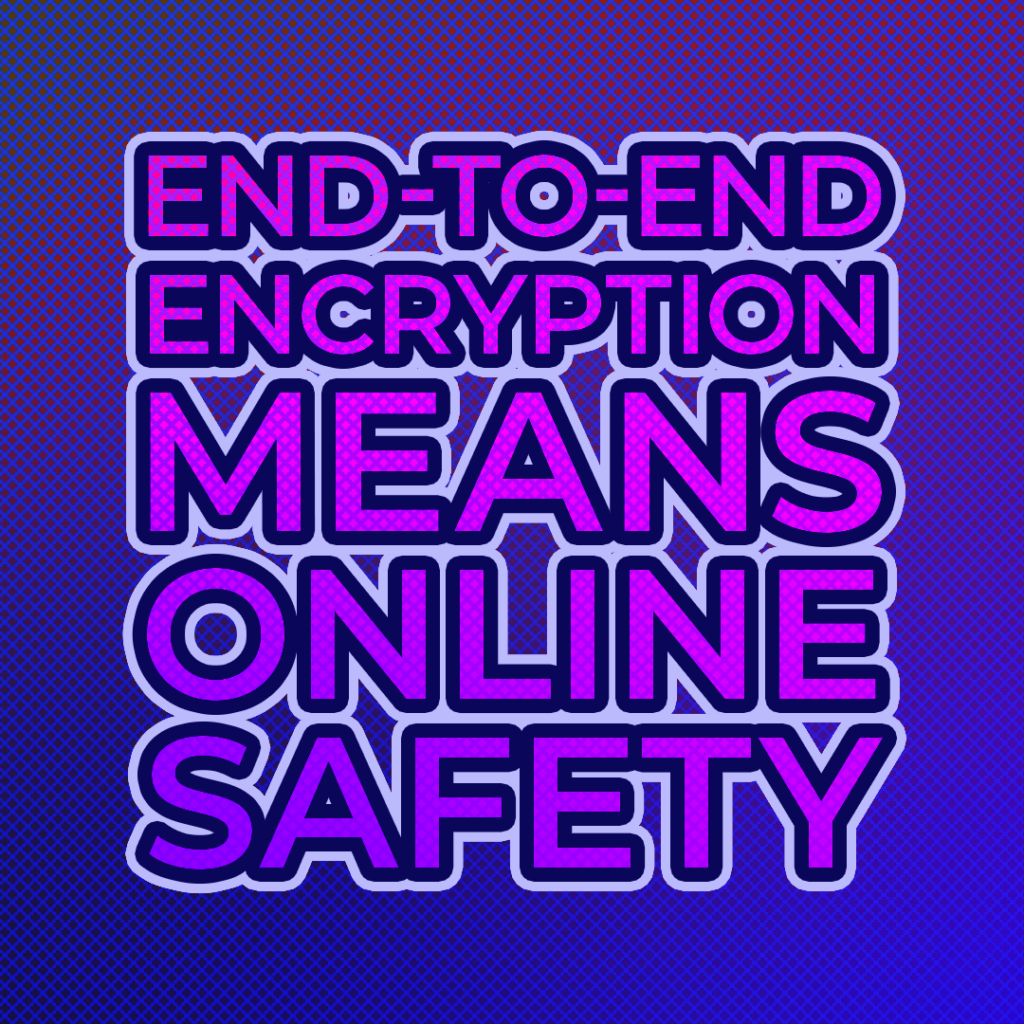Save Encryption
Message scanning breaks end-to-end encryption, which puts everyone’s privacy and security at risk.

Practice Safe Text
The Online Safety Act includes mass surveillance powers under the spy clause. Ofcom can require messaging providers to scan everyone’s private chats for ‘illicit’ content.
0
This introduces a backdoor that would make people vulnerable to hacking and abuses of their private information without any control over who gets access.
0
Some providers of end-to-end encrypted messaging services, such as Signal and WhatsApp, have said they will withdraw their service from the UK, rather than undermine security if Ofcom decides to make use of these powers.
0

A Threat to Privacy and Security
The Case for Encryption
Monitoring the private communications of an entire population jeopardises privacy and security on a mass scale. End-to-end encyption helps us to stay safe online.
Find out moreEncryption keeps our private information safe and secure. It’s essential for being safe online when sending messages, shopping, doing online banking – and for storing things safely in the cloud.
0
Creating a backdoor to encryption is a threat to our right to privacy and cybersecurity. It’s not possible to scan in a way that only gets the ‘bad guys’ and leaves everyone else untouched.
0
We must save encryption.

Message scanning powers are more suited to an authoritarian regime, not a democracy. It could harm journalists, and whistle-blowers, as well as parents, domestic violence victims and children who want to keep their communications secure from online predators and stalkers.
The Online Safety Act
Over 75% of adults in the UK use WhatsApp alone. Forcing companies to scan private messages would mean 24/7 mass surveillance of every smartphone in the country checking for matches against all of our content. The wide-ranging Ministerial powers in the Act mean that a future government could decide to scan for other kinds of content – such as political content – without proper Parliamentary scrutiny.
Government and law enforcement could force companies to scan your private messages for illicit content without judicial oversight, not unlike in surveillance societies like China. If we accept the principle of mass surveillance of our private messages, it opens the door to creeping authoritarianism.
Who’s checking your private chats?
Briefing on the impact on end-to-end encryption of the Online Safety Act
Find out moreopen letter on encrypted messaging
Over 80 civil society groups and experts on the threat of message scanning powers
Find out moreThe Online safety act policy hub
Find out more in our policy papers on the passage of the Online Safety Act
Find out moreThe Investigatory Powers Act
The Investigatory Powers Act introduced powers that could force tech companies to apply to the Home Office before introducing updates that improve the security and privacy of their products. The Home Office could then serve notices preventing the updates from being applied.
These powers have recently been used to demand that Apple put a backdoor in its encrypted services, resulting in the advanced data protection tools being withdrawn from the UK entirely – sign our petition to save encryption (see below).
Petition: keep our apple data encrypted
Stop the Home Office from putting our security at risk by demanding a backdoor into Apple’s encrypted services
Take ActionJoint letter: make the apple encryption hearing public
ORG, Big Brother Watch and Index on Censorship called for the IPT to be held in public, not secret
Find out moreEncryption threat in the Investigatory powers act
Investigatory Powers Act threatens people’s access to security updates and privacy friendly apps
Find out moreKEEP UP TO DATE WITH OUR CAMPAIGNS
Subscribe to our newsletter to receive updates on the latest developments affecting your digital rights
Sign up now